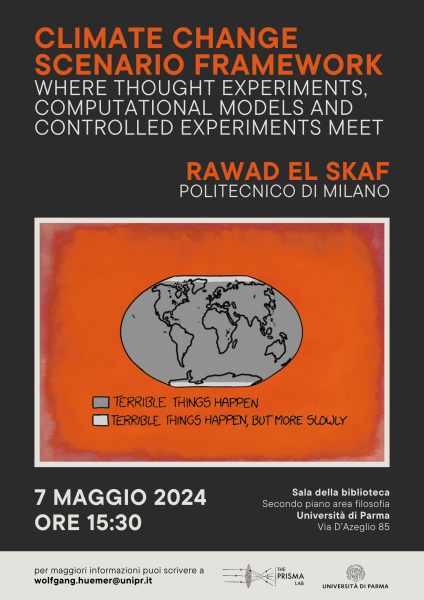Rawad El Skaf: Climate Change Scenario Framework

Where Thought Experiments, Computational Models and Controlled Experiments Meet
Seminario Rawad El Skaf (Politecnico Milano).
Abstract: Scenarios and pathways, as defined in the “SSP-RCP scenario framework”, are key in climate change research and in the latest Intergovernmental Panel on Climate Change (IPCC). In this framework, Shared Socioeconomic Pathways (SSP) consist of a limited set of alternative socioeconomic futures, that are both represented in short qualitative narratives and with quantitative projections of key drivers. One important use of the computationally derived SSP-scenarios is to present options for mitigation (and adaptation) to decision-makers. For that, the research community conducts “experiments” with these SSP-scenarios. But this raises the following philosophical question: seeing that scenarios are plausible hypothetical descriptions of future states of affairs, how is it then possible to do experiments when there are no empirically manipulable objects in the real world to experiment upon? To answer it, first I will analyse the recently developed “scenario framework”, then I will show that the whole process of constructing and then using scenarios within this framework is one in which aspects of thought experiments, computational models and controlled laboratory experimentation meet.




 Dusic Community
Dusic Community https://dusic.unipr.it
https://dusic.unipr.it dusic@unipr.it
dusic@unipr.it